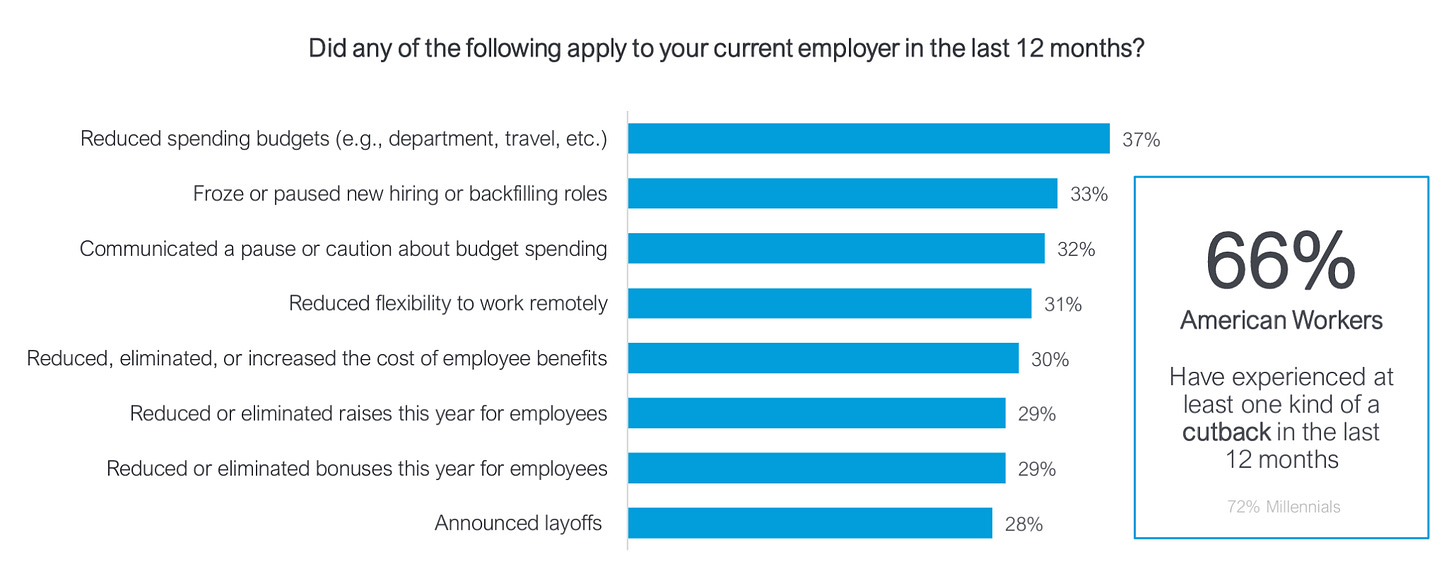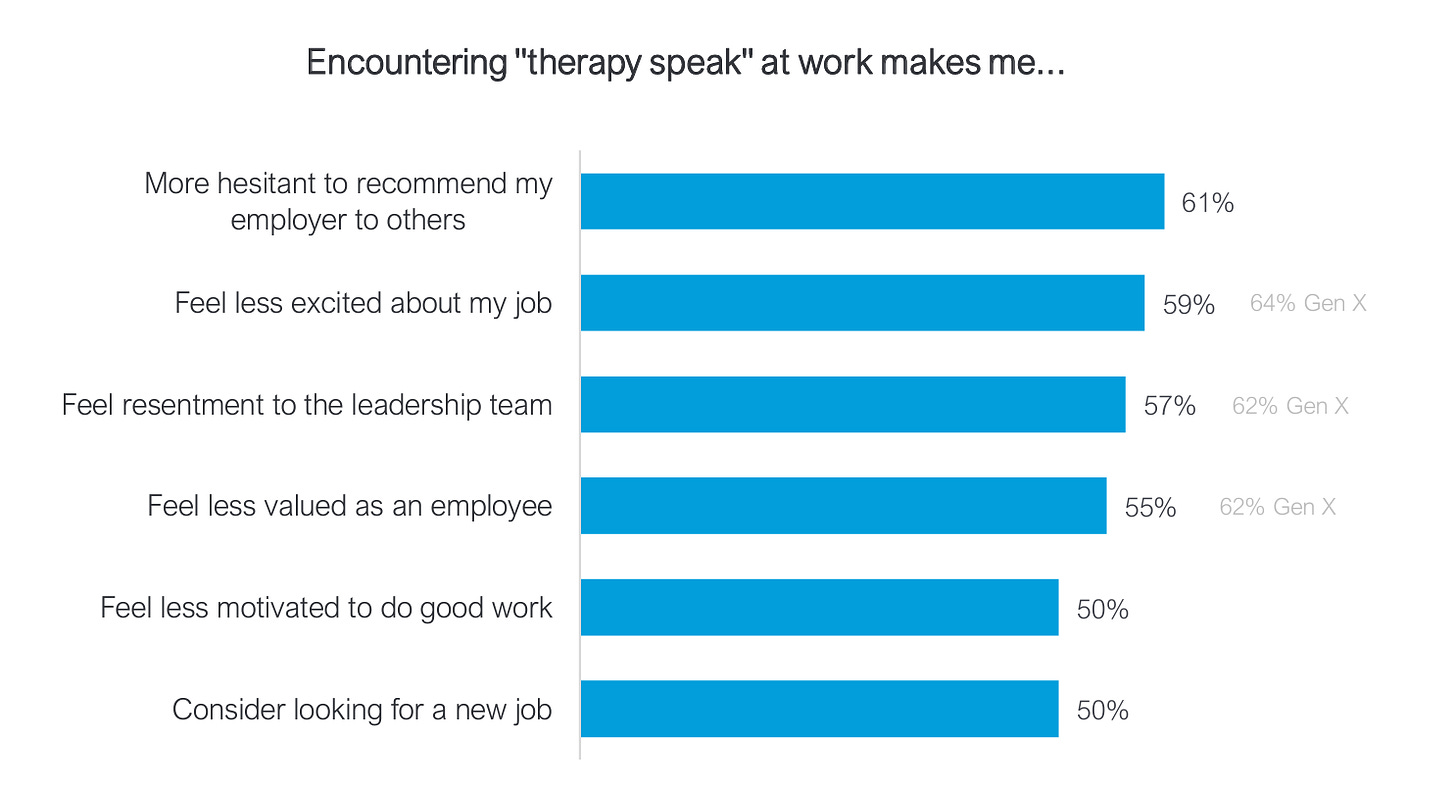The New Cringe: Corporate Therapy Speak
No one wants family from work, the words to cut from your conversations
The Next Big Think! will send you one number, one meaty insight, and three links weekly to keep you ahead of societal shifts.
68% of employed Americans say they “care more about who they are outside of work” than they do about their work identity
Work identity has been quintessentially American. Americans have always been tied to their work identities; it is often the first question asked in social situations. But that paradigm is shifting, and while Gen Z gets flack for being the ‘lazy’ generation that doesn’t want to hustle hard every day, we see this reorientation across generations. This reorientation is moving cultural conversations from ‘work-life balance’ into ‘life-first’ design thinking.
Source: The Harris Poll
The New Cringe: Corporate Therapy Speak
What:
In today's post-truth transitory culture, people are on high alert for genuine leadership. They want solid rocks and beacons of hope.
The surveillance culture we talk about impacting Gen Z, is being shifted and reorientated back to corporate leadership. Authenticity radars are at an all-time high. This puts leaders in a challenging and highly watched position, especially as leaders navigate topics like; RTO, bonus/ salary freezes, toxic political landscapes, polarized cultural wars, actual wars, loss of human rights, and crumbling social systems.
One big thing to watch for is → Corporate Therapy Speak
You’ve probably heard of ‘therapy speak’ swirling through culture, which refers to an empathetic-sounding language used as a sign of understanding, but usually fails with appropriate follow-through.
That sentiment has hit the workplace with severe consequences, from CEO takedowns (e.g., PityCity CEO) to lower satisfaction and retention rates.
What the data tells us:
Here is the full report; our data is covered in Inc. and Forbes.
American workers are on edge, as two-thirds have experienced some sort of cutbacks within the last year, including slashed raises and bonuses, layoffs
Employees report hearing ‘therapy speak’, especially the more attuned Millennials
67% of employed Americans have experienced “therapy speak” at work (Millennials: 79%)
71% “I can easily see through my company’s ingenuine friendly or empathetic tone in their communications.” (Millennials: 76%)
Top cringe offenders (not believable to employees)
“This is a growth opportunity”
“We’re family”
“These are the right steps”
“Your feedback is important to us”
“We understand your point of view”
When you use these phrases employees go on high alert and are ready to protect themselves away from the company
“Therapy speak” makes American employees more resentful toward the leadership team (57%) and less excited about their jobs (59%), with half going as far as thinking about looking for a new job (50%)
What can you do
Employees are looking for active and genuine listening. So how do you listen while navigating the challenges?
Try to avoid the “Therapy speak” language (above) when it’s possible.
Work at understanding employees’ points of view and reflecting it to them to show them you are listening while explaining the decisions.
Explain how you plan to monitor the new decision over time (e.g., we will watch our quarterly earnings and reevaluate salaries in Q4, or we will monitor RTO on the following metrics to ensure it’s valuable for our employees and company).
3 Links
TikTok is testing an AI chatbot called Tako (huge implications to search within TikTok) (The Verge)
Etsy promised shopping with a soul. Then the scammers came. (The Washington Post)
Beck's Appeals to Gen Z's FOMO by Brewing a Beer for Seniors (AdWeek)
Also big shout out to Lindsey Stanberry (author of Money Diaries, editor at Fortune, CNBC etc.) who just launched ‘The Purse’, read her first piece here I quit my job so you don’t have to.
Bonus: Check out our recent work with First Tee.
Curiosity is contagious; if you like this newsletter, please share it!!
Penned by Libby Rodney and Abbey Lunney, founders of the Thought Leadership Group at The Harris Poll. To learn more about the Thought Leadership Practice, just contact one of us or find out more here.








